Find the net force? Include direction.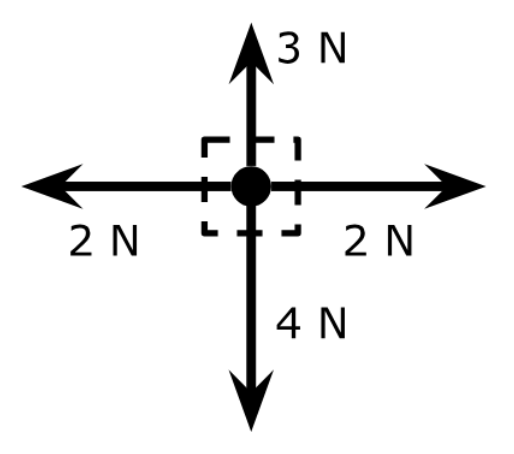
1 N down.
Velocity is zero.
Rest.
When objects of the same size & shape but different mass are dropped, this is what happens.
They hit the ground at the same time.
A system's potential energy decreases by 20 J. How does its kinetic energy change?
Conservation of Energy.
Its kinetic energy increases by 20 J.
An object of mass 2 kg has an acceleration of 3 m/s2. What is the net force on the obejct?
Fnet = ma
Fnet = 6 N
Which wave has a higher frequency?
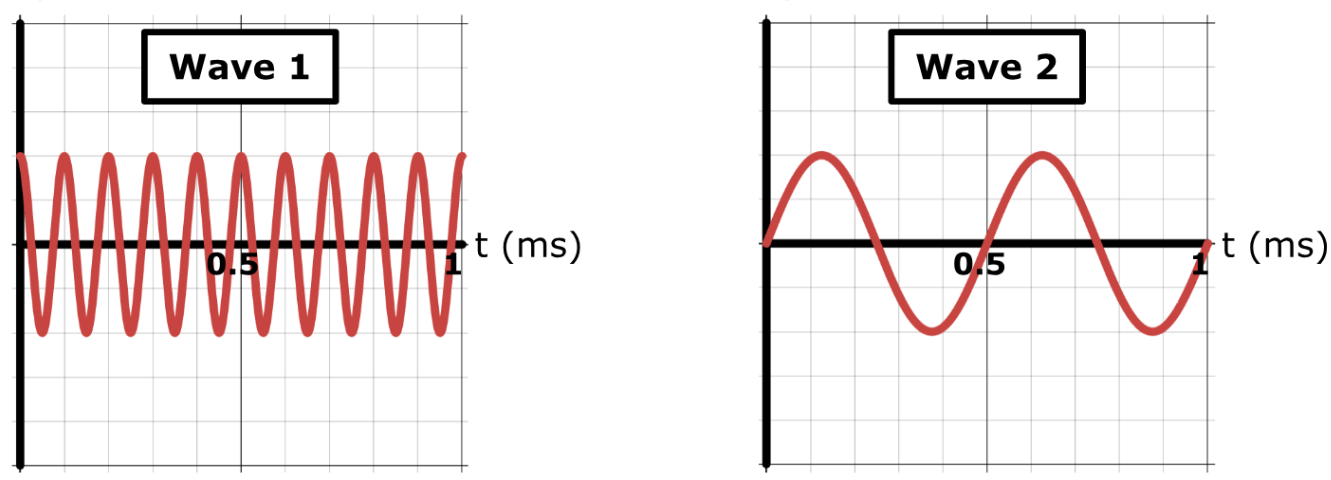
Wave 1.
Same temperature.
Thermal equilibrium.
When there is a temperature difference, thermal energy flows in this direction.
From high temperature to low temperature.
An asteroid crashes into a planet. Which feels more force, the asteroid or the planet?
Newton's 3rd Law.
Neither feels more force.
A wave that travels at 24 m/s has a frequency of 3 Hz. What is its wavelength?
v = λf
λ = 8 m
Which object is moving but has a net force of 0 N?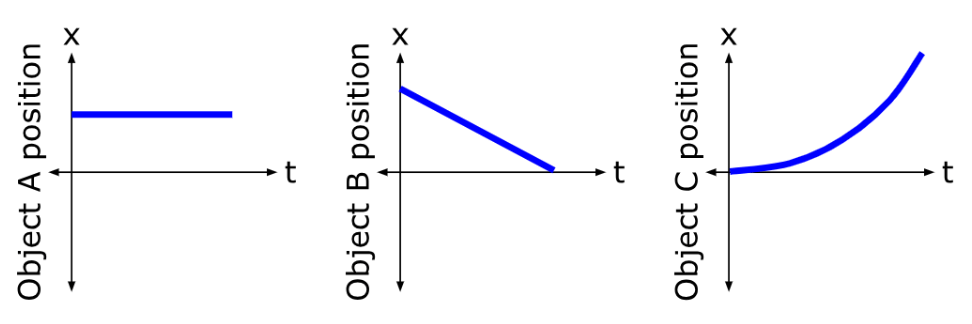
Object B.
Wave that can travel through a vacuum.
Electromagnetic waves.
Momentum
When the net force acting on object is zero, the object will do this.
Newton's 1st Law.
Move at constant velocity or remain at rest.
An object beginning at rest travels for 4 s while accelerating at 9 m/s2. How far did the object travel?
Δx = viΔt + ½aΔt2
Δx = 72 m
Calculate the current across the 6 Ω resistor.
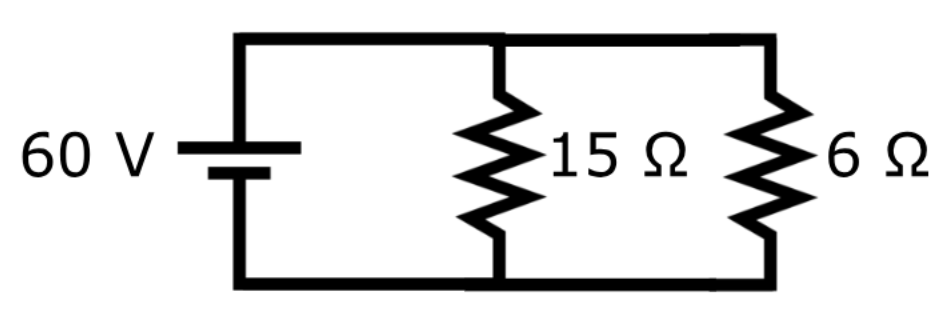
10 A.
"Average molecular motion" corresponds to this physical quantity.
Temperature
The speed of sound is greatest in this state of matter.
Solid
When a wave source moves towards you, its frequency does this.
The Doppler Effect.
The frequency increases.
An object that has a mass of 4 kg has 32 J of kinetic energy. How fast is the object moving?
KE = ½mv2
v = 4 m/s
Going from medium C to medium D, what happened to the speed of light?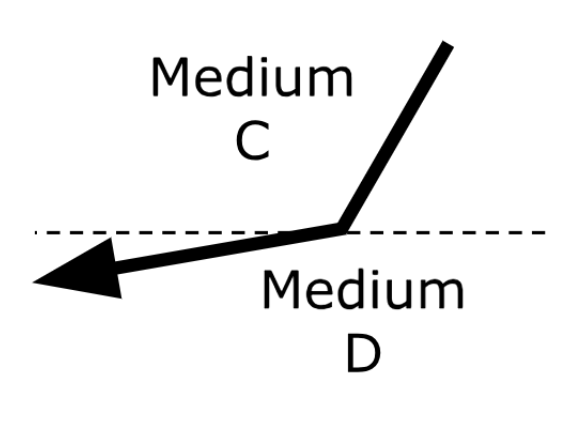
The speed of light increased.
Acceleration is zero.
Constant velocity, equilibrium, or net force is zero.
Creating by moving electric charges or a current carrying wire.
Magnetic field.
What is the difference between a dangerous crash & a safe stop?
Impulse-Momentum Theorem.
The amount of time that it takes to stop.
The distance between two masses doubles. What happens to the force between them?
Fg = Gm1m2/d2 → Fg ~ m1m2/d2
Fg ~ 1/4 so the force is quartered.